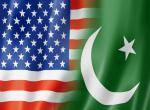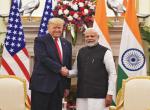China has always been something of a conundrum for India. This is partly because the Chinese are somewhat inscrutable and often enough their interlocutors can spend hours in trying to decipher the underlying message or hint or signal that is being conveyed. But partly it is also because somehow India and China have never quite managed to have any kind of strategic convergence despite not having any fundamental, much less a civilizational, conflict, with each other. Of course there is the baggage of the 1962 border conflict. There is also an element of competition between the two countries given their size and potential. Plus, there are the outstanding territorial disputes, which in a sense are relatively minor when viewed in the broader context of bilateral relations. Both countries therefore have a lot more to gain from closer cooperation than from a confrontational relationship. Which is why, the constant Chinese efforts to undermine and undercut India don't make much sense. By doing what it is doing, China only displays a rather petty and short term strategic thinking, instead of the long term, calculated planning that is often attributed to it.
That the Chinese are deeply concerned over the US pivot to Asia is a no-brainer. The US rebalancing in Asia is seen by China as a strategy to constrain and, to the extent possible, contain China. Clearly, the Chinese would be loath to seeing India going whole hog into the US camp. Recent write-ups in government controlled Chinese media have, somewhat patronisingly, expressed confidence that India will retain its strategic autonomy and independence and would not become a tool in the hands of the US against China. Some of the articles, in a very condescending tone, have even advised India to refrain from badmouthing China as that's not going to make India great. Ironically, even though the Chinese would not like India to become America's cats-paw, their actions seem to be pushing India into precisely the direction China would like to avoid.
Some of these actions – stapled visas, the transgressions on the Line of Actual Control etc. – are needless pin-pricks. In strategic terms these don't amount to anything, except create unnecessary bad-blood. Some other actions - the use of Pakistan-occupied Kashmir for building the China Pakistan Economic Corridor (CPEC) or even the technical hold put by the Chinese on the designation of Pakistani jihadists as international terrorists by the UN - are essentially aimed at backing Pakistan over India. By backing a country that views India as a civilisational enemy and which remains unreconciled to the very existence of India, China isn't exactly building any confidence in India that it harbours no hostile intentions against it. If anything, the Chinese support to Pakistan raises the spectre of a nut-cracker situation for India, forcing it in turn to balance the adverse consequences of a Sino-Pak alliance with growing closeness with the US, and also countries like Japan, Australian and other smaller nations on China's rim which have serious concerns over aggressive Chinese moves in the region.
The Chinese resistance to India's entry into the Nuclear Suppliers Group (NSG) is emblematic of its policy towards India. The Chinese disingenuously claim that their position on India's entry to NSG is based on a 'principled' stand that insists on procedural inviolability. In addition, they are pitching for a criteria based approach to admitting new members to NSG, which would also open doors for Pakistan's entry. By denying India entry into NSG, the Chinese are trying to kill two birds with one stone: earn the fawning servility of their client state, Pakistan, and at the same time prevent India from not only trading in nuclear materials and technology but also from obtaining many of the technologies that are currently not freely available. In a sense, China is trying to do to India what it accuses the US and its allies of doing to China, viz. containment. But China probably knows better than any other country that containment isn’t always a smart policy, and often enough can be a counterproductive. Simply put, just as China cannot be contained, India too cannot be cfined to a limited space.
China’s India policy is just so yesterday, rooted more in the 19th and 20th Centuries rather than in the 21st Century. While the world is moving towards geo-economics – which interestingly enough has been the propelling force behind China’s remarkable rise – the Chinese are sliding back into the era of geo-politics. In the process, they are getting into the business of ‘counter-balancing’ the US’ ‘rebalancing’ and at the same time trying to unbalance India by throwing their weight behind Pakistan. The trouble is that the efficacy of ‘balance of power’ policy ultimately depends on who is being used to balance what. By choosing Pakistan to imbalance India and counter-balance the growing US-India closeness, the Chinese strategy is self-defeating. A simple comparison between what India brings to the table in terms of its economy, soft-power, military, size, diplomatic influence etc., with what Pakistan brings to the table (its nuisance value) should have been enough to inform the Chinese of their strategic folly. Clearly, by pushing India towards the US and picking up Pakistan as an ally, the Chinese are in fact upsetting the balance of power (for themselves), not restoring it.
The Chinese interests would probably be better served if instead of propping up a losing proposition like Pakistan, they made the necessary gestures to woo India and prevented it from getting into a tight embrace with the Americans. If indeed the Chinese are as smart and farsighted as they are supposed to be, this would be the smart policy because it would actually force India to keep a balance between its relations with both the US and China. The fact that the Chinese have adopted a totally opposite policy suggests that they are possessed with more of a tunnel vision than the telescopic vision they are often credited with. If so, then perhaps India has less to worry about China than it does. Of course, if the Chinese are indeed smart then it's only a matter of time before they realise their folly of aligning with Pakistan and change course.
For over 60 years, the glue that has bound China to Pakistan is the inimical relationship of both countries with India. But in recent years, new forces have emerged – to name just two, geoeconomics and Islamism – that could weaken the glue. The rise of Islamism in Pakistan and the proliferation of jihadist terror groups in that country has all the seeds of an eventual civilizational conflict with an ‘infidel’, or worse, ‘Godless’ country like China. While the narrative of international jihadist groups already has China in its cross-hairs, even some Pakistani terror groups, most notably the Lashkar-e-Taiba/Jamaatud Dawa, have fired the first verbal salvo at China. The LeT chief, Hafiz Saeed, has warned China to desist from anti-Muslim and anti-Islam measures.
Sooner or later China will have to decide whether the benefits of siding with Pakistan outweigh the costs of carrying the can for Pakistan’s notoriously bad image and reputation. For the Chinese to try and stabilize a tottering Pakistan by pumping in money and weapons in that country but without assertively influencing Pakistan's self-destructive policies is bit of a mugs game. The Americans tried it and failed, now perhaps it's China's turn. The Pakistanis see their relationship with China as a zero sum game in the context of India. The real test of the so-called ‘deeper than the seas, higher than the Himalayas, stronger than steel and sweeter than honey’ friendship of the two ‘iron brothers’ will come as and when there's a détente, or even a closer political relationship between India and China. Given that the Pakistan’s hatred for India outweighs its loves for Islam, as far as the Pakistanis are concerned, China can do what it wants against Islam as long as it is also hostile to India. But if China gets friendly to India, Pakistan’s friendship with China will go sour.
Compared to China's small-minded and short sighted strategy towards India, the Indian strategy towards China has been far more mature and far-sighted. Far from reacting in a petulant manner to China’s slights, India hasn’t allowed itself to be distracted from taking a long term view of how it proposes to engage China. In a way, India’s has taken a leaf out of the Chinese playbook by displaying a sort of strategic patience that no one ever credited India with. The way India sees it, there is no reason why China will forever be an inimical power. A quarter century ago, none of the old school, hard-nosed strategists and diplomats in India ever imagined the USA will ever tilt in India's direction against its most allied ally Pakistan. Just as things changed with the USA the same could well happen with China.
Published Date: 4th July 2016, Image Source: http://www.thehindubusinessline.com
(Disclaimer: The views and opinions expressed in this article are those of the author and do not necessarily reflect the official policy or position of the Vivekananda International Foundation)











Post new comment